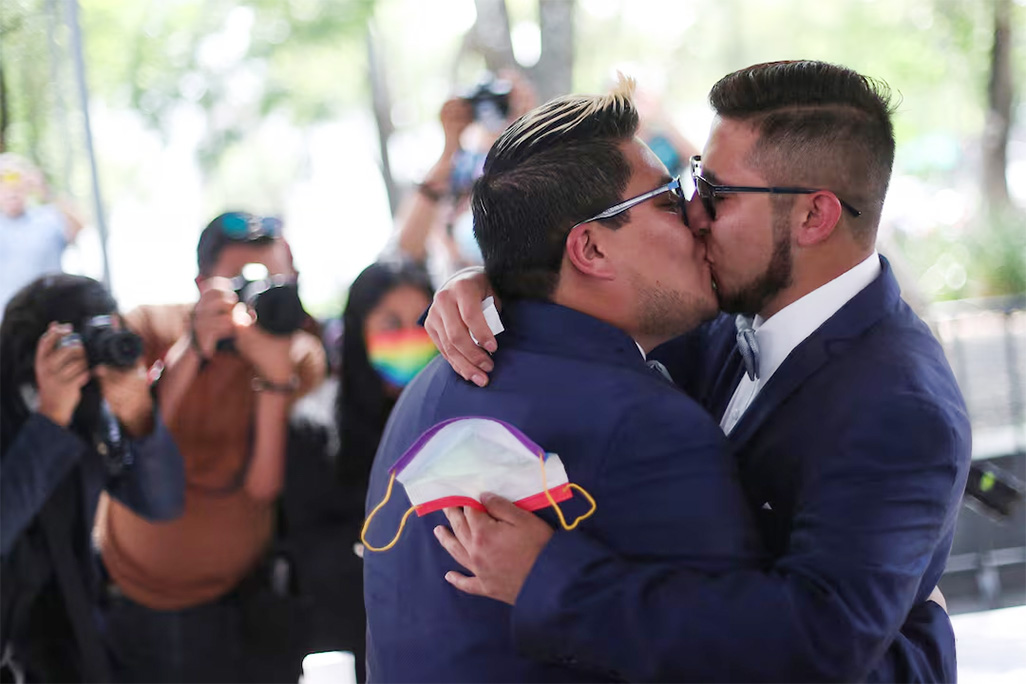Although regulations on marriage, and in particular same-sex marriage, are a matter for member states, they are required to “establish appropriate procedures” to ensure that couples married in another member state are not left in a “legal vacuum” with regard to property, taxation or inheritance rights, according to a proposal by the EU Court of Justice’s prosecutor in response to a preliminary ruling from a court in Poland.
The case concerns two Polish nationals, one of whom also has German citizenship, who married in Berlin in 2018. When they requested the transfer of their German marriage certificate to the Polish registry office, the application was rejected on the grounds that Polish law does not provide for marriage between persons of the same sex.
According to the non-binding opinion of the CJEU Advocate General, J. Richard de la Tour, EU law requires Member States to recognise marriages between persons of the same sex that have taken place in another Member State, but does not oblige Member States to register the marriage certificate in the registry office.
However, he notes, the situation in cases such as this case is different since registration in the registry office is the only means of recognizing the marriage so that the freedom of movement and residence of EU citizens in all Member States in accordance with Community law cannot be restricted.
After their application was rejected, the couple challenged the decision, with the case reaching the Supreme Administrative Court of Poland, which referred a preliminary question to the Court of Justice of the EU.
The Polish court asked the CJEU to clarify whether a Member State’s legislation or practice which does not allow either the recognition of a marriage between persons of the same sex or the registration of the certificate of such a marriage in the civil registry books is compatible with EU law.
The Advocate General’s proposal is not binding on the Court of Justice of the EU, which will issue the ruling in the preliminary ruling procedure. However, it is the national court that will be called upon to take the final decision, taking into account the CJEU’s ruling. This ruling is also binding on other national courts in similar cases.
In particular, according to a CJEU press release, in his proposal the Advocate General recalls that “personal status, including rules relating to marriage, is a competence of the Member States”, however, “in exercising this competence, Member States must comply with Union law”.
“The absence of any kind of recognition of the marital relationship established in another Member State restricts the freedom of movement and residence of Union citizens guaranteed to them by Union law,” it is noted, while non-recognition of the relationship may constitute an infringement of the right to respect for private and family life.
This is why “it is up to Member States that do not provide for marriage between persons of the same sex to establish appropriate procedures” so that the procedures “do not leave same-sex couples in legal uncertainty and regulate fundamental aspects of their lives relating to property, taxation or inheritance rights”.
As each member state is responsible for determining the procedures for recognizing same-sex couples, the transcription of the foreign marriage certificate at the registry office is not required, “provided that the marriage produces its effects without compliance with the specific formality,” as it is noted.
Given the absence of alternative solutions in Poland that would make it possible to prove the marriage, such as the production of another official document recognised by the Polish authorities, the Advocate General concluded that EU law imposes on that Member State the obligation to transcribe the certificate.







Click here to change your cookie preferences